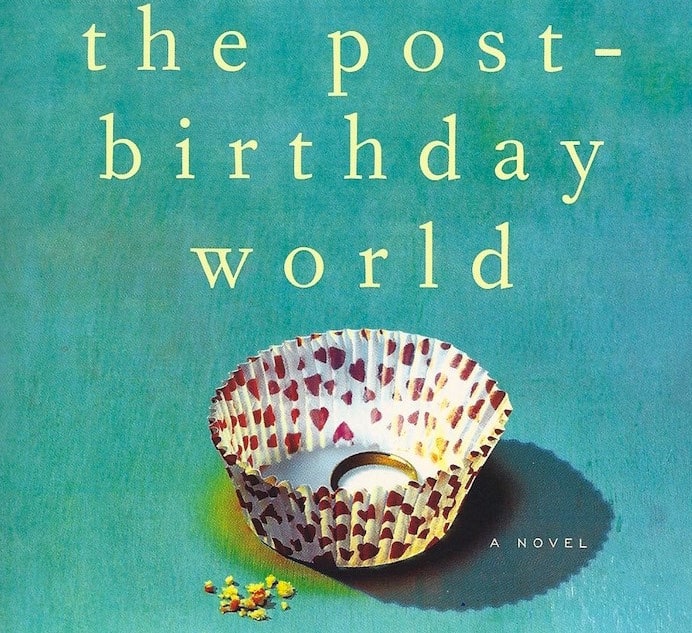
by Christina Waters | Oct 21, 2016 | Home |
How many times have you walked into a room, and gotten sidetracked by a piece of mail and after you opened the mail you realized that you’d forgotten why you came into that room in the first place? You re-trace your steps, hoping to remember what you started out to do, when you get a text that sends you to your calendar which then makes you realize that you’ve forgotten an appointment?
That’s your brain on multi-tasking, a state of omni-directional distraction in which you are very busy, but rarely effective. You are doing at least three things at once, but you can’t remember doing them. You are scattered, your abilities cling for dear life to the slick surface of your consciousness. Tasks scream to be completed, but no deep thought process is ever engaged.

21st century reality urges us to multi-task. Because you can. Thanks to the internet, the smart phone, Blue Tooth devices, it is easy to work on many “channels” at once. Uh-huh, I murmur to my girlfriend on the phone, while I’m simultaneously checking my Facebook page and searching for a restaurant address on my desktop computer. Or I get an idea for a chapter heading while I’m driving. No worries there. I can text myself, or I can grab a notebook and a pen and write at a stop light (which of course turns green long before I notice it). Or I can order my Bluetooth to “phone home” and leave myself a message. All while driving. Or taking a walk. Or having coffee with a friend.
Imagine that drive, that walk, the conversation without the presence of all those digital distractions. Suddenly, effortlessly, you can become aware of the place that you’re in, the houses along the street, the aroma of the trees, the coziness of your friend’s laughter. And the taste of the coffee. No one ever said “mmmm” to a digital device.

If you’re performing three different actions at once, you’re not actually present in any of them. If you’re going through the motions, you’re cheating yourself. And you’re probably doing a half-ass job at each on of those bits of behavior. Why not prioritize? (No, you really don’t need to text someone back the minute they texted you.)
• Edit that “to-do” list.
• Now go deeply into the activities that remain. The time you spend is the only time you have. It won’t return, you can’t get it back. So why not make it matter?
• Deschedule! Leave some blank space on your calendar.
• Enjoy the feel of the towels warm from the dryer. Give the plant some love while you water it. Put down your book, cell phone, whatever and actually look at your partner, listen to what he’s saying.
• Multi-tasking means that you’re always living in the future, not the present. And the present is where the action is!

by Christina Waters | Oct 16, 2016 | Home |
It was a piece in The Guardian that led me to read Lionel Shriver‘s justly renowned novel The Post-Birthday World. In this richly imagined, cunningly plotted, and brilliantly realized “what-if?” novel, we meet Irina McGovern, a book illustrator pivoting between alternative possible realities involving two wildly different romantic attachments.
McGovern, an American living in London finds herself suddenly striken with the overwhelming desire to kiss snooker star Ramsey Acton after a night of dinner, drinks, and a joint. The book then tracks back to her life with snooker fan and policy wonk Lawrence Trainer, with whom Irina has lived for ten years of unwedded contentment. As we dive deeper into Irina’s longings, of various sorts, author Shriver offers us psychologically nuanced chapters in which the kiss had led to much more, with attendant complexity. In subsequent passages, Irina’s life with Lawrence has been shaded and varied to mirror what might happen next, in the post-kiss world. (The title alludes to the birthday dinner in which the kiss either happens, or doesn’t.)
Rare is the writer who can capture the interior mercurial mood swings of people in the thrall of a new physical passion. Nor can many flesh out the domestic key signature of a ten-year partnership.
“Hey!” He dropped his briefcase in the hall. “Where have you been all afternoon?”
“Oh,” she scrambled, “running a few errands.”
Wrong. People who have lived together for years were never “running errands.” She could have said she was at Tesco because they were low on Greek yogurt, or at the hardware store at Elephant & Castle because the lightbulb in the studio desk light had burnt out – that’s what you say to the man you live with. Because Irina knew all about the exactingly particular nature of domestic reportage, her failure to heed its form was tantamount to wearing a sandwich board that announced in big block letters, BEHOLD MY CHEATING HEART.”
I’m possibly the last English language reader to realize how famous Shriver is for another book— We Need to Talk About Kevin—made into one of those tightly knotted Tilda Swinton movies. But as far as I’m concerned, Shriver’s reputation will be deathless based upon this single book, The Post-Birthday World. Not only does she describe over-the-top domestic disagreements as well as the almost imperceptible minutiae of everyday meanderings with such complete confidence and precision that I pretty much decided against ever writing another word in the face of such mastery. Shriver is a virtuoso, and she writes about a world I know! Longings I’ve had, agonies of professional decision that have come my way more than once, and the ubiquitous suspicion that I am in love with two different people at the same time. She is the mistress of a world that resonates right down to my cellular structure. Let’s just say that she delivers more than I’d ever hoped for.
The Post-Birthday World is funny (laugh out-loud funny), erudite (thank god for wiki-dictionaries), and remarkably explicit about the sorts of sexual longings people—okay, women—actually have. I have rarely read such raunchy, pulse-pounding descriptions of lust, and never in a novel that qualifies as literature. How refreshing! I felt like a woman who’d just crossed the Mojave and was suddenly plied with glasses of sparkling water, a few gin and tonics, and one of those infinity pools.
With its masterful handling of the intertwining “two reality” plot—think Jonathan Franzen’s four-dimensional characters blended with Kate Atkinson’s time alterations—Shriver’s book is at its finest as a close reading of human tendencies, the good, the bad, and the regretted.
On desire:
Surely it was a relief that her flush of forbidden passion did not return. She should be grateful to feel little more than vague good wishes for his performances. The fact that Ramsey Acton was an attractive man had been safely restored to the abstract. In tandem, she was plagued by an enigmatic sense of loss. Usually one rues the fact that a desire has gone ungratified. Yet maybe the commodity more precious than its fulfillment, was the desire itself.
In one version of her future, Irina has left Lawrence and yet finds herself returning to their old apartment for sentimental visits. “On these surreptitious trips to Borough, Irina wasn’t really visiting Lawrence, but herself.”
And in yet another possible future twist, Irina meets Ramsey and his ex-wife at a party.
As they filtered toward the wine, she fell into step with Ramsey, and drew him aside. . . . “I’m surprised you’re back with Jude.”
“At my age, I’m too knackered to make a new mistake. It’s easier to make the same one.”
As I neared the end of this terrific ride, I began to tense up. How could she possibly end this with the same powerful stride that she’d used throughout the book? As I let myself read that last page, I grinned. Big grin. She’d done it. Avoiding chick lit cliché, avoiding treacle, avoiding operatic Disneyesque climax, she remained true to the restless self-assessments of her protagonist. It will be a bloody long time, as Irina might put it, before I find a book as compelling as this one. But, for the record, I’ve just begun Shriver’s We Have to Talk About Kevin. So I’ll get back to you.

by Christina Waters | Oct 15, 2016 | Home |
“Feeling so nostalgic for London,” said my friend Tai this morning. “It must be the autumnal weather.”
She and I spent two weeks in England exactly a year ago, hiking through Jane Austen country in beautiful Bath and then sampling the great parks and urban energy of London. Yet those two weeks were enough to lay down lifelong memories deep inside our bodies. And the nostalgia she mentioned was a sensory longing. Those explorations of the River Avon, walking along the canals and through the sudden green mists of the hills above the town. The noisy excitement of bustling London streets, shiny from morning rain, filled with lights, traffic, coffeehouses, architectural grandeur, the pungent pleasures of teatime loaded with tiny sandwiches and fat little cakes. Yes, our visit to England had been a broad cascade of adventures all accessed through our bodies.

The same sort of nostalgia is rarely kindled by simply having looked through a picture book of London. Or by watching a National Geographic special about the bohemian barge dwellers of the River Avon. Why? Because those experiences are filtered through other media. They cannot give us direct contact with the place, the weather, the people.
Nothing cuts through the numbing filter of contemporary media like action. Think about it. Merely reacting to a phrase or a sense of obligation, or the suggestion of a pop-up ad is to submit to someone else’s agenda. “They” feed you ideas, you react. “They” call the tune, you dance.
Digital devices provide us with data, our bodies provide actual experiences. Immediacy is the antidote to media.
 Our senses are our direct connection with the world around us – through our bodily awareness the world comes to us as a symphony of aromas, textures, and flavors. No TV special delivers the deep tissue awe of that first glimpse of the Grand Canyon. No internet article on gardening can deliver the uncomplicated delight of watching your carrot seedlings push up toward the sun. Can you feel the fur of that cute cat on the latest FB video? Nope, but your hands want to don’t they?
Our senses are our direct connection with the world around us – through our bodily awareness the world comes to us as a symphony of aromas, textures, and flavors. No TV special delivers the deep tissue awe of that first glimpse of the Grand Canyon. No internet article on gardening can deliver the uncomplicated delight of watching your carrot seedlings push up toward the sun. Can you feel the fur of that cute cat on the latest FB video? Nope, but your hands want to don’t they?
 The body is the gateway to feelings that dive inside us—the sensory pleasures that help create our taste, our style of living, our personal ambitions. Magazine advertisers have caught on to this, that’s why all those fashion magazines are loaded with actual perfume samples. An aroma stays with us more vividly that a product photo.
The body is the gateway to feelings that dive inside us—the sensory pleasures that help create our taste, our style of living, our personal ambitions. Magazine advertisers have caught on to this, that’s why all those fashion magazines are loaded with actual perfume samples. An aroma stays with us more vividly that a product photo.

Many of us unreflectively conduct lives mediated by screens: screens insisting that we need this product, screens showing us the symbols and letters sent by a friend, screens showing us far-away destinations or domestic interiors to tempt us into this or that purchase. What we glimpse through those media is someone else’s idea of what we need, and how we should live. And those images on those screens are seen by millions of others. There’s the rub! [Vermeer alt by Mitchell Grafton]
To live facing the Screen is to live a collective, and hence generic life. It is to sacrifice our individuality, our own choices, our body’s discoveries. It is to be not ourself, but always an Other. What we give up by all watching the same news, soaking up the same sports matches, choosing the same clothing and accessories are the unique moments, choices and discoveries we could have made . . . by and for ourself. In this collective addiction to mediated living, we erode the adventures and discoveries that can make our history ours alone—that make us individuals, not part of a herd.

by Christina Waters | Oct 1, 2016 | Home |
It usually begins with something written down longhand. I take it up to my computer, apply a little blind faith and just begin in-putting what’s written on the page. Then something clicks and I’m expanding those ideas without actually thinking. Something else has taken over. The consciousness that surrounds my body and magically connects instinct with a huge stream of words. In that connection, there is no more Self. Just the words flowing out of my hands. And when it stops — usually all by itself— I regain my consciousness, look at what’s written on the screen and wonder how it got there.
When the zone takes over, I have no memory of having written those words. And when I discover that they’re good, I just grin. And grin.

by Christina Waters | Sep 30, 2016 | Home |
A college birthday party featuring tequila, piñatas and sombreros is branded “an act of ethnic stereotyping.” The perpetrators are branded racists, their party deemed an act of “cultural appropriation.” Thus begins writer Lionel Shriver’s piercing critique in The Guardian of Identity Politics and its sweaty-palmed encroachment on the realm of fiction.
If we embrace narrow group-based identities too fiercely, we cling to the very cages in which others would seek to trap us. We pigeonhole ourselves. We limit our own notion of who we are, and in presenting ourselves as one of a membership, a representative of our type, an ambassador of an amalgam, we ask not to be seen.
My sister and I, back in the innocence of the early 60s, loved to comb through a trunk of colorful clothing in order to “dress up” as “gypsies.” Two lily-white-skinned little girls clad in long skirts, hoop earrings and bandanas prancing around an attic playroom—oh yes, we were serious emerging racists.
Or were we simply making believe? Applying our growing and eager imaginations to the task of pretending to be something, someone exotic and other just to see if we could convince ourselves of fictional identities. Yes, that was it. We were exercizing our imaginations—the intellectual skills that would guarantee our ability to envision new things, empathize with new people and beings other than ourselves.
The strangle-hold of academia’s repudiation of play, fictive theatrics, not to mention colorful and original dress codes, has almost destroyed whatever might remain of open minds and creative inquiry. The lock-step of identity politics has exceeded its 15 minutes. Confining individuals in stockades of broad bandwidth “identities,” pretty much guarantees that students will be unable to discover who they might have been before they were caged in generic silos.
Those who embrace a vast range of “identities†– ethnicities, nationalities, races, sexual and gender categories, classes of economic under-privilege and disability – are now encouraged to be possessive of their experience and to regard other peoples’ attempts to participate in their lives and traditions, either actively or imaginatively, as a form of theft.
Shriver speaks for me, and many others who are weary and beyond impatient with the persistence of intellectual censorship when she hopes that, “the concept of ‘cultural appropriation’ is a passing fad: people with different backgrounds rubbing up against each other and exchanging ideas and practices is self-evidently one of the most productive, fascinating aspects of modern urban life.”
I’d add that this flirtation of and with difference is the most fascinating—and foundational—aspect of fictional literature, drama, filmmaking, painting, composing, et al. Without being able to imagine characters different from ourselves, or from anyone we’ve ever known, our consciousness – and our ability to dream other worlds – would atrophy.







 Our senses are our direct connection with the world around us – through our bodily awareness the world comes to us as a symphony of aromas, textures, and flavors. No TV special delivers the deep tissue awe of that first glimpse of the Grand Canyon. No internet article on gardening can deliver the uncomplicated delight of watching your carrot seedlings push up toward the sun. Can you feel the fur of that cute cat on the latest FB video? Nope, but your hands want to don’t they?
Our senses are our direct connection with the world around us – through our bodily awareness the world comes to us as a symphony of aromas, textures, and flavors. No TV special delivers the deep tissue awe of that first glimpse of the Grand Canyon. No internet article on gardening can deliver the uncomplicated delight of watching your carrot seedlings push up toward the sun. Can you feel the fur of that cute cat on the latest FB video? Nope, but your hands want to don’t they?



